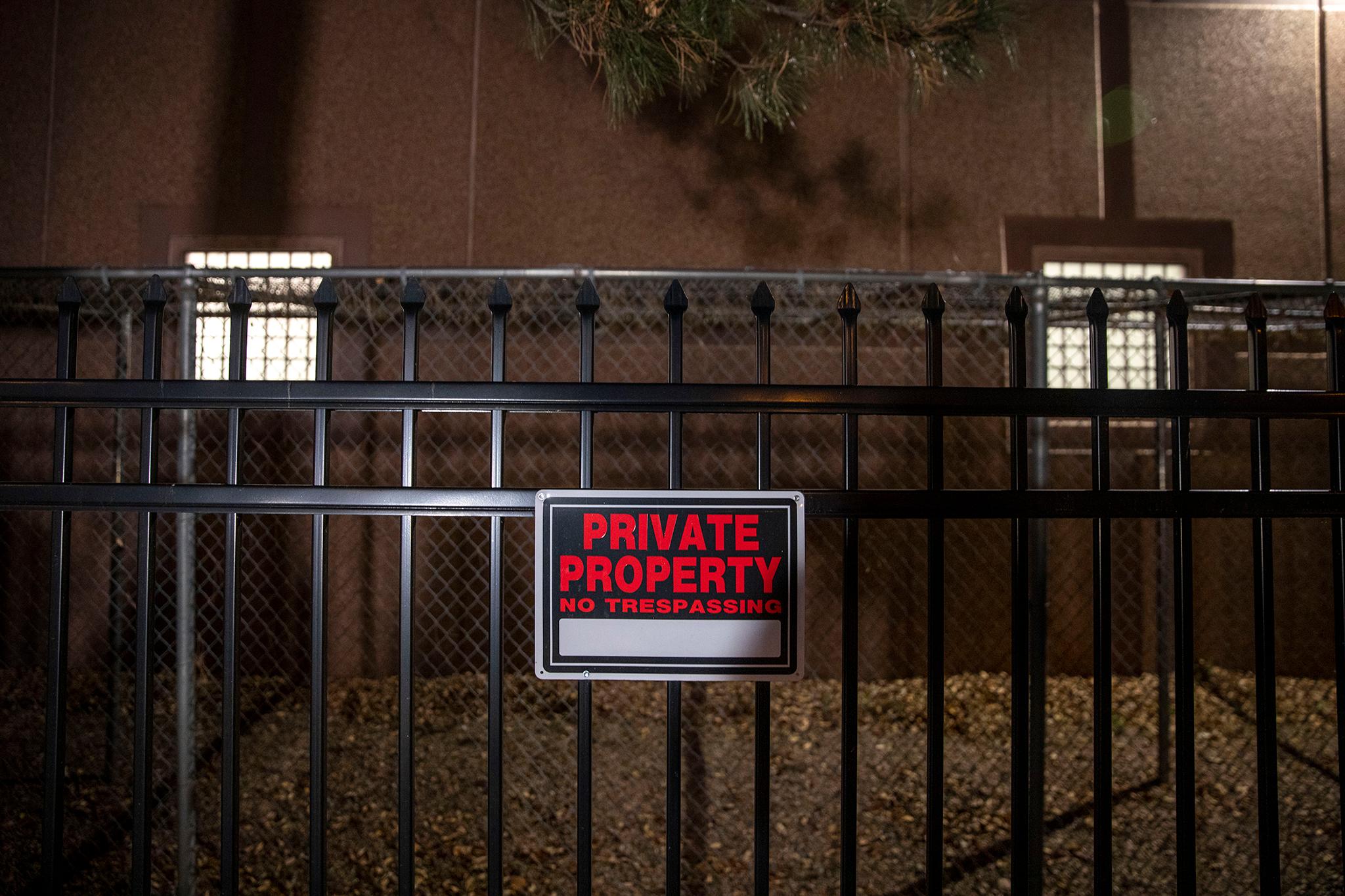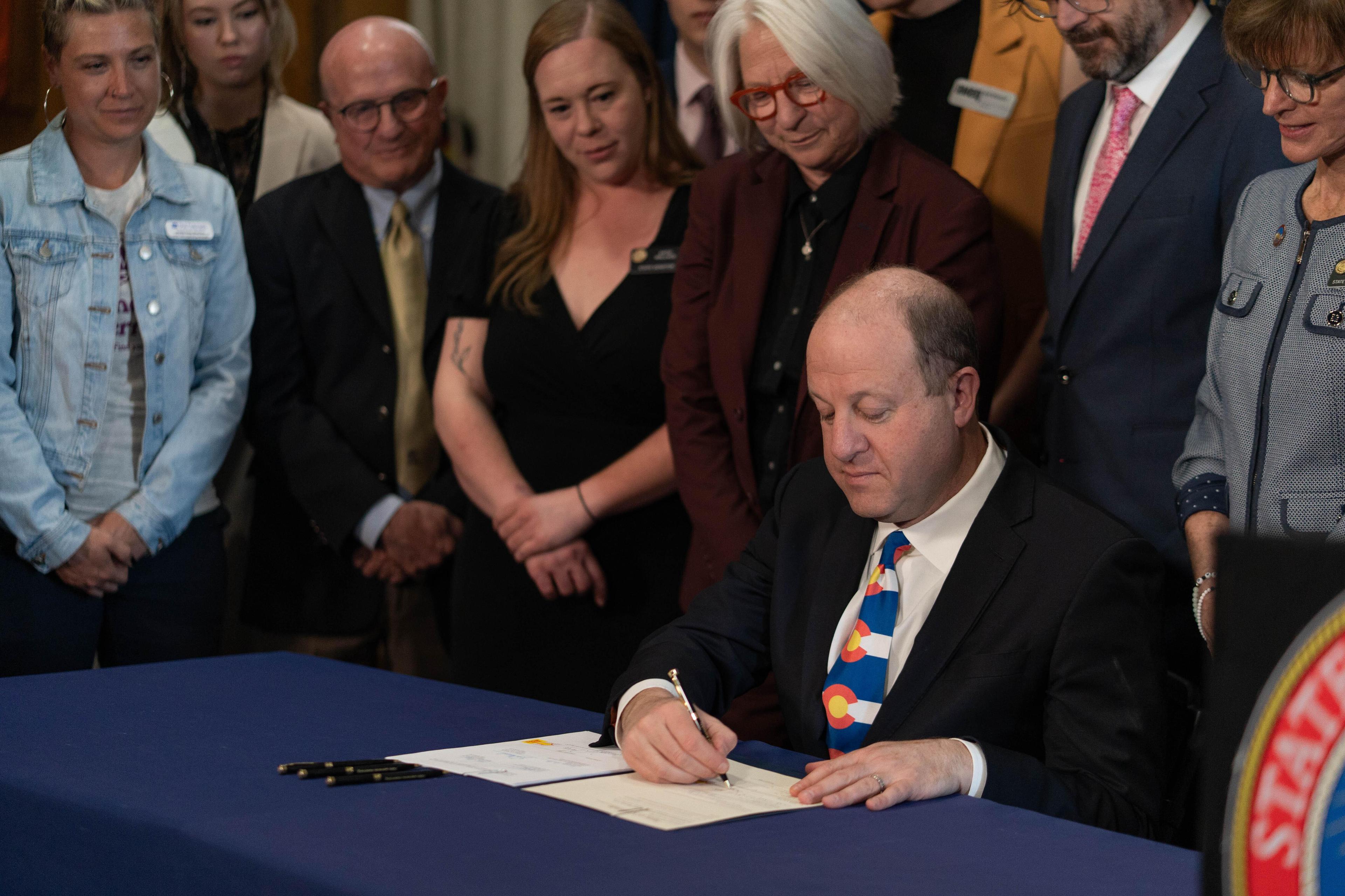
An independent autopsy ordered by the family of Melvin Ariel Calero Mendoza — an asylum seeker who died last summer while in ICE custody — confirms much of what the coroner for Adams and Broomfield counties concluded in a report released in February, including his cause of death.
According to both reports, Calero Mendoza, 39, died from a pulmonary embolism he suffered while at the GEO Group detention center in Aurora. That embolism likely stemmed from a toe injury he suffered while playing soccer, which went untreated for months.
“The mystery, in this case, is not, ‘How did Mr. Calero Mendoza die?’ That's pretty clear,” said Elizabeth Jordan, a lawyer for Calero Mendoza’s sister. "The mystery is why didn't they catch the thing that was killing him [during] the multiple attempts he made to get medical care over many weeks.”
Border patrol agents arrested Calero Mendoza, a Nicaraguan migrant, in 2022 after he crossed the U.S.-Mexico border illegally. While in detention, he sought medical attention at least three times for pain related to his foot injury, according to the autopsies and a death review by ICE.
Each time, nursing staff gave him over-the-counter acetaminophen and ibuprofen.
A lack of movement while in custody likely contributed to the development of a blood clot in his leg. The clot led to a deadly embolism in October 2022, both autopsies concluded.
The family’s independent review also noted several discrepancies between ICE’s death review and the county coroner’s autopsy, including dates of medical visits and the total number of injuries to Calero Mendoza’s foot.
“I suspect that the discrepancies are the result of miscommunication or misinterpretation of the information in the ICE report,” said Dr. M. Scott McCormick, the family’s California-based pathologist, in his report.
However, the discrepancies did not make a substantive difference in determining the cause of death, McCormick concluded.
After Calero Mendoza’s death, immigrant advocates and Democrats in Colorado’s congressional delegation called for an investigation, which is due out this spring. GEO Group, in a statement, said it was cooperating with the inquiry from ICE’s Office of Professional Responsibility.
“We offer our condolences to Mr. Calero Mendoza's family, and remain committed to ensuring the health and safety of all those in our custody and care,” a spokesman for GEO Group said.
Calero-Mendoza’s death last fall spurred multiple protests and vigils outside of the Aurora facility. His case fits into a broader pattern of preventable deaths among otherwise healthy asylum seekers at privately-run detention facilities, advocates and medical experts say.
Roughly 28,000 immigrants are currently being held in ICE detention across the United States as they await court proceedings.
A study analyzing dozens of deaths in ICE detention between 2011 and 2018 found that in over 60 percent of cases, nursing staff missed clear warning signs.
ICE has severed contracts for several of its worst-performing detention facilities. But others — even those in violation of federal medical standards — remain open across the country.
Lawyers for Calero Mendoza’s family said they’ve met resistance when requesting more detailed medical records and surveillance video of the 39-year-old’s time in detention.
“Melvin’s family is disappointed but unsurprised by this lack of public accountability,” Jordan said. “We call on ICE and GEO Group to offer a full and accurate explanation of what happened to Melvin.”
Past deaths in the Aurora facility have resulted in increased oversight of GEO Group’s operations. After the death of an Iranian detainee in 2017 due to opioid withdrawal, Colorado’s Democratic delegation passed legislation that increased visitation at the facility.
In the delegation's letter to ICE’s acting director last fall, Rep. Jason Crow requested an independent inquiry including interviews with detainees who witnessed Calero Mendoza’s condition, as well as a plan to prevent future deaths at the facility.








